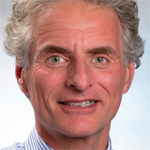Crowdsourcing works because it draws on the curiosity and the altruistic impulses of the human spirit. Participants generally have some expertise in solving puzzles, making them specifically adept, for example, at solving complex protein-folding problems. This creative approach will likely cultivate the growth of open source science, allowing investigators to share ideas and resolve many challenging research issues relatively quickly and at low cost. Perhaps the benefits of lower-cost DIY research will trickle down to DIY care.
Can the crowd be used effectively in our domain, clinical medicine? Can the diagnostic abilities of nonphysicians be tapped for the benefit of patients? A proliferation of online sites that mine the crowd in search of finding accurate diagnoses have recently sprouted, the most prominent being CrowdMed. Patients submit their cases, often offering a monetary reward to incentivize the medical detectives to work on their cases. Medical detectives can be just about anyone; there are no educational requirements.9
The founder of CrowdMed, an economist named Jared Heyman, started the site after his younger sister contracted a debilitating illness that no one could diagnose. After two years of fruitless leads and half a million dollars in tests, she was given a diagnosis and began treatment. Heyman believes that a large group of engaged participants tends to be smarter and their combined wisdom more accurate than any single expert. He claimed that just three days after submitting his sister’s multi-year symptoms, the site’s medical detectives had correctly identified her condition (he does not specify what it was).
Will CrowdMed challenge our practices? Or will it merely serve the needs of those patients with multiple somatic complaints and a paucity of objective findings? Let the crowd decide.
Medical crowdsourcing is popping up in many locations. There are YouTube clips, Facebook postings and tweets describing odd or difficult diagnostic dilemmas in search of answers. Every month, the Diagnosis column of The New York Times Magazine asks readers to try their hand at solving a medical riddle.10 Cases are presented in a fair amount of detail, and readers are asked to e-mail their diagnoses. Recent winners have included a retired bookkeeper who made the diagnosis of postural tachycardia syndrome in a young woman with fainting spells, a layperson with an “interest in hypoglycemia” who diagnosed an insulinoma and a college undergraduate who solved a puzzling case of porphyria.
No doubt, these exercises confirm the considerable general interest in solving medical puzzles. Will rheumatologists be replaced by the crowd? I don’t think we need to fret, at least not yet—or perhaps we should. A recent study surprisingly observed that the mortality rate for patients with advanced cardiac disease who were admitted to teaching hospitals during the days of national cardiology meetings actually fell.11 Yes, patients did better when the doctors were away!


